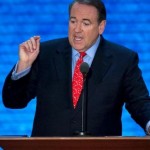Each Friday in Not Fit for Dinner, C. Ryan Knight explores political issues and the preconceptions guiding our understanding of and responses to them.
The national spotlight is on Congressman Paul Ryan more than ever before, now that Mitt Romney chose him as his running mate. This week has been a crash course in which we’ve glimpsed Ryan’s childhood pictures, learned about his voting record, and heard about his position on nearly every election issue.
One area of particular interest—or concern—is Ryan’s devotion to Ayn Rand, a famous novelist and thinker who emigrated from Communist Russia to America and heralded individualism over collectivism (or statism). Conservatives have often praised Rand’s political views: severely limited government, free markets, individual liberty, and the likes. Her ideological fervor can make Barry Goldwater and Milton Friedman seem like lightweights.
Christian conservatives who have had a crash-course on Rand’s ideas worry about her influence on Ryan, a Catholic, for Rand was a staunch atheist (at one point she described Christianity’s values as “the best kindergarten of communism possible”) and believed only in what can be perceived through reason of the natural world. In the words of Rand scholar Craig Biddle, her philosophy, known as Objectivism (though it’s hardly objective), is
fully secular and absolutist; it is neither liberal nor conservative nor anywhere in-between. It recognizes and upholds the secular (this-worldly) source and nature of moral principles and the secular moral foundations of a fully free, fully civilized society.
Had Rand believed in hell, she would have cast faith, altruism, social welfare, and just about every public official and bureaucrat in it, had she the power to do so.
As Ryan’s devotion to Rand’s ideas have come under increased scrutiny, he’s had to emphasize his rejection of her philosophy, accepting only her political and economic views. On Fox News, Ryan said Rand’s Objectivism is “something that I completely disagree with.” Instead, Ryan simply “enjoyed” her novels—Atlas Shrugged specifically—and thought they were “interesting.”
This is quite a different story from his statement at a 2005 Atlas Society event, where he had this to say:
I grew up reading Ayn Rand and it taught me quite a bit about who I am and what my value systems are, and what my beliefs are. It’s inspired me so much that it’s required reading in my office for all my interns and my staff.
We can probably accept that Ryan rejects Rand’s atheism, but his statement from 2005 makes it very hard to believe some of Rand’s principles that are antithetical to, say, Christianity have not made their way into Ryan’s thinking.
I won’t go into the literary quality of Rand’s novels, which is, to quote Flannery O’Connor, “as low as you can get.” If I’d received a copy of Atlas Shrugged for Christmas as a present from Ryan (a favorite present of his to give others in years past), I would have considered it the closest I’ve ever come to getting coal in my stocking.
Instead, I think it’s important to point out that Rand used her fiction to apply (and probably develop) her basic philosophical principles. As Rand scholar Jennifer Burns explained in her recent book on Rand’s influence on conservatism, numerous businessmen admired and praised Rand’s fiction, find it (in Burns’ words) “a perfect fit for [their] corporate efforts.”
But Rand’s Objectivism is the starting point for her political and economic philosophy. It makes certain assumptions about human nature and traces the ripple effects of those assumptions. In this case, the egg (Rand’s Objectivism) comes before the chicken (her fiction). So the notion that readers like Ryan are able to separate Rand’s philosophy from her fiction, as well as her political and economic beliefs, is wishful thinking. The ideas in Rand’s fiction stem directly from her Objectivist principles, for better or worse.
We can’t simply pretend a thinker’s foundational principles, political affiliations, or beliefs have no bearing on their work in other fields. When we reject a thinker’s foundational principles, it is our job to carefully probe the thinker’s ideas we accept to see what effect(s) the thinker’s foundational principles have upon those ideas. Contrary to Marvin Olasky’s call for conservatives to “show what in Rand they agree with and what they spurn,” I argue we can’t simply pick and choose what we like and reject what we dislike. Ideas don’t appear without strings. They carry traces of their origins with them.
I agree with many writers that Romney’s selection of Ryan is helpful in that it forces the national debate to deal with ideological beliefs in addition to current issues (Medicare, Medicaid, energy, etc.). But as we move in this positive direction, we have to carefully investigate how basic principles inform and guide ideas about politics, economy, and so forth. These ideas may very well affected—perhaps even tainted—by the foundational principles from which they derive.
Next week Benjamin Bartlett will explore these questions and others about Ryan in a feature article.











